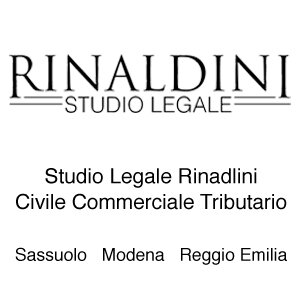Best Sanctions & Export Controls Lawyers in Sassuolo
Share your needs with us, get contacted by law firms.
Free. Takes 2 min.
List of the best lawyers in Sassuolo, Italy
About Sanctions & Export Controls Law in Sassuolo, Italy
Sanctions and export controls are legal measures designed to restrict trade, finance and other interactions with specific countries, entities or individuals for reasons of national security, foreign policy or human rights. In Sassuolo, as elsewhere in Italy, these measures are implemented primarily through European Union regulations and decisions, United Nations resolutions and Italian national rules that translate and enforce those measures at the local level. For businesses and individuals in Sassuolo the practical effect is that certain sales, shipments, payments or services may be prohibited, restricted or require prior authorization. Local customs authorities and law enforcement agencies monitor compliance, while violations can result in administrative fines, criminal charges and reputational harm.
Why You May Need a Lawyer
Sanctions and export control law can be complex and fast-changing. You may need a lawyer if you encounter any of the following situations:
- Your company in Sassuolo exports goods that could be classified as dual-use items or military goods and you need to determine whether a license is required.
- You are unsure whether an overseas buyer, partner or intermediary is on a sanctions list and whether that affects a planned transaction.
- You receive a customs inquiry, seizure notice or an investigation from Agenzia delle Dogane, Guardia di Finanza or another authority about a shipment or payment.
- Your business uses technology, software or services that may be subject to intangible export controls, such as cloud services, technical assistance or transfers of controlled information.
- You need to design or audit an internal compliance program, including screening procedures, recordkeeping and staff training.
- You suspect a possible violation and want advice about voluntary disclosure, mitigation and defending against administrative or criminal enforcement actions.
- You are an individual or company facing potential sanctions designation or a challenging cross-border transaction that raises sanctions risk.
Local Laws Overview
Key points about the legal framework that affects sanctions and export controls in Sassuolo and Italy:
- EU Primacy: Many sanctions measures are adopted at European Union level in the form of EU regulations and decisions. EU regulations are directly applicable in Italy without separate national legislation, so businesses in Sassuolo must comply with them immediately when they come into force.
- United Nations: UN Security Council resolutions may require member states, including Italy, to adopt and enforce sanctions. Italy implements UN measures through national procedures.
- National Implementation: Italy supplements EU and UN measures with national rules and administrative procedures for licensing, enforcement and penalties. National ministries and agencies manage license applications, oversee exports of military goods and coordinate enforcement.
- Licensing Regimes: Dual-use items are controlled under the EU dual-use regulation and require export authorizations in many cases. Military goods and defense-related technology generally require national authorization from the competent Italian authorities before export.
- Customs and Enforcement: Agenzia delle Dogane e dei Monopoli enforces export controls at the border, while Guardia di Finanza and other prosecutors investigate financial crimes, sanctions circumvention and serious violations. Local prefectures or other administrative bodies may also be involved in authorizations and inspections.
- Criminal and Administrative Sanctions: Violations can lead to administrative fines, seizure of goods, suspension of business activities and criminal proceedings depending on the severity and intent. Companies can also face corporate liability and reputational damage.
- Compliance Expectations: Authorities expect companies to have adequate screening, recordkeeping and internal controls. Demonstrating proactive compliance efforts can affect enforcement outcomes and penalties.
Frequently Asked Questions
What is the difference between sanctions and export controls?
Sanctions are targeted legal measures restricting dealings with specific countries, organizations or individuals for political, security or human-rights reasons. Export controls aim to prevent the proliferation of weapons, sensitive technologies and dual-use items that could harm national or international security. There is overlap - for example, exports to sanctioned destinations can also fall under export-control restrictions.
Do EU sanctions apply in Sassuolo?
Yes. EU sanctions in the form of regulations are directly applicable throughout Italy, including Sassuolo, and must be followed by individuals and businesses without waiting for separate national enactment.
Who issues export licenses in Italy?
Export licenses for dual-use and military items are governed by EU and national procedures. Italy designates competent authorities to process license applications and to authorize military exports. Local exporters normally submit applications through national portals or offices designated by Italian ministries and customs. A local lawyer can help identify the right authority and the documents required.
How do I know if an item is a dual-use good?
Goods, software and technology are classified according to control lists established by EU rules. Dual-use items are those with legitimate civilian uses but that could also be used for military or proliferation purposes. Classification can be technical and case-specific, so companies often seek legal or technical advice to determine whether a license is needed.
How can my Sassuolo business screen customers and partners for sanctions risk?
Implement a sanctions screening program that checks counterparties, beneficial owners and intermediaries against EU, UN and other relevant sanctions lists; screen transactions and payments; maintain records of due diligence; and apply enhanced checks for higher-risk geographies or industries. A lawyer or compliance consultant can help tailor screening procedures to your business.
What are the consequences of violating sanctions or export control rules?
Consequences range from administrative fines and seizure of goods to criminal charges for serious or intentional breaches. Companies can also face suspension of export privileges, civil liability and severe reputational harm. Coordinated international enforcement means violations can have cross-border implications.
Can I be prosecuted for unknowingly exporting a controlled item?
Intent and knowledge often affect penalties. Unintentional violations may result in administrative sanctions or lighter penalties if the company can show it had appropriate compliance measures in place. Nonetheless, lack of knowledge is not always a defense, so preventative compliance is important.
What should I do if customs detains a shipment in Sassuolo?
Preserve all related documents, immediately contact your legal counsel and notify your compliance or export control officer. A lawyer can advise on administrative procedures, prepare a response to customs, help obtain release of goods if possible and manage any subsequent investigations or negotiations with authorities.
Are there controls on intangible exports like software or technical assistance?
Yes. Export controls can apply to intangible transfers of controlled technology or software, including electronic transfers, access to cloud servers and providing technical assistance across borders. Assess both physical shipments and non-physical transfers when evaluating compliance obligations.
When should I consult a lawyer?
Consult a lawyer when you first identify potential sanction or export-control issues - before completing a cross-border transaction, when a counterparty raises sanctions flags, upon receipt of an authority notice, when classifying goods, or when establishing or auditing a compliance program. Early legal advice can prevent violations and reduce enforcement risk.
Additional Resources
The following authorities and organizations are commonly involved in sanctions and export-control matters relevant to Sassuolo residents and businesses:
- European Union institutions that adopt sanctions and the EU dual-use regulation.
- United Nations Security Council, whose resolutions can generate binding sanctions obligations for Italy.
- Italian Ministry of Foreign Affairs and International Cooperation, which participates in diplomatic coordination and licensing for certain exports.
- Agenzia delle Dogane e dei Monopoli, the customs authority that enforces export controls at borders.
- Guardia di Finanza, responsible for investigating economic and financial crimes including sanctions circumvention.
- Ministry of Economic Development and Ministry of Defence, which are involved in licensing and oversight for specific categories of controlled goods.
- Local Chamber of Commerce in the Province of Modena, which can provide practical export support and guidance for businesses in Sassuolo.
- Trade associations and compliance professional bodies that offer training, model policies and sector-specific guidance.
Next Steps
If you need legal assistance in sanctions and export controls in Sassuolo, consider the following practical steps:
- Gather documentation about the transaction or issue - invoices, contracts, technical specifications, shipping documents and communications with the counterparty.
- Identify the goods or technology involved and any known links to sanctioned countries or persons.
- Initiate contact with a lawyer experienced in EU and Italian sanctions and export-control law. Request an initial assessment that covers licensing requirements, sanctions screening and immediate compliance steps.
- Consider conducting a targeted risk assessment or compliance audit to identify gaps in screening, recordkeeping and internal controls.
- If a potential violation has occurred, ask your lawyer about voluntary disclosure options and strategies to mitigate enforcement risk.
- Implement or update internal policies, employee training and technical screening tools to prevent future issues.
Taking timely legal advice and adopting clear compliance measures will help protect your business, limit legal exposure and ensure that operations from Sassuolo remain aligned with Italian and international obligations.
Lawzana helps you find the best lawyers and law firms in Sassuolo through a curated and pre-screened list of qualified legal professionals. Our platform offers rankings and detailed profiles of attorneys and law firms, allowing you to compare based on practice areas, including Sanctions & Export Controls, experience, and client feedback.
Each profile includes a description of the firm's areas of practice, client reviews, team members and partners, year of establishment, spoken languages, office locations, contact information, social media presence, and any published articles or resources. Most firms on our platform speak English and are experienced in both local and international legal matters.
Get a quote from top-rated law firms in Sassuolo, Italy — quickly, securely, and without unnecessary hassle.
Disclaimer:
The information provided on this page is for general informational purposes only and does not constitute legal advice. While we strive to ensure the accuracy and relevance of the content, legal information may change over time, and interpretations of the law can vary. You should always consult with a qualified legal professional for advice specific to your situation.
We disclaim all liability for actions taken or not taken based on the content of this page. If you believe any information is incorrect or outdated, please contact us, and we will review and update it where appropriate.









